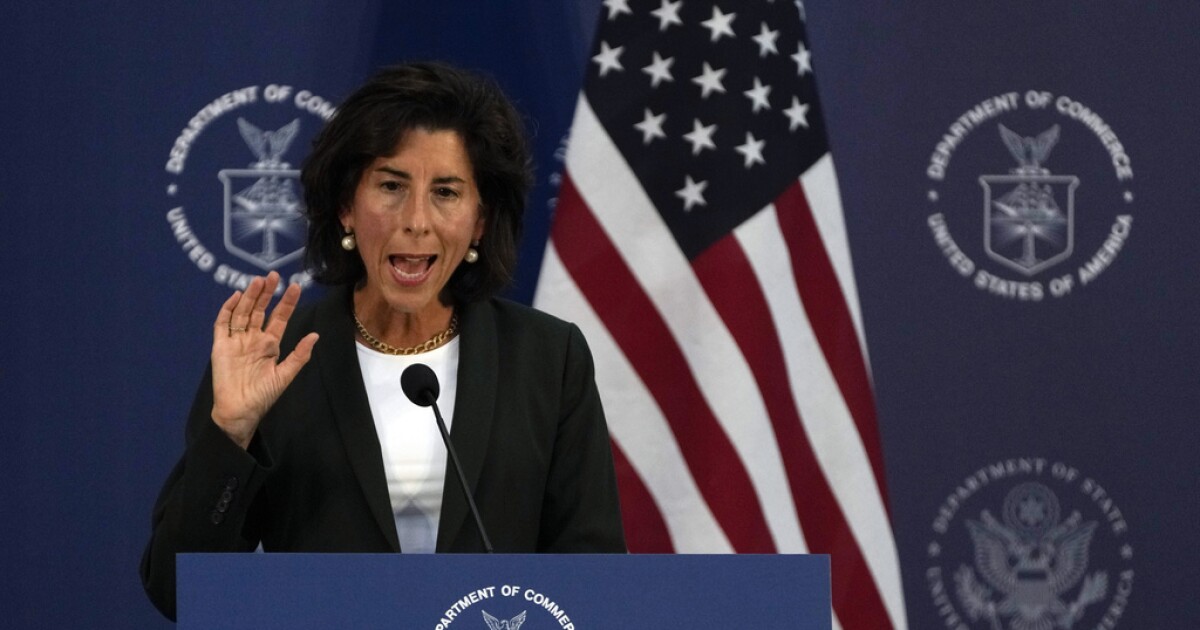

Commerce Secretary Gina Raimondo said she was surprised by the release of a Chinese-built mobile phone with advanced chips but did not believe it was proof that China could produce similar chips at a scale that would allow the country to keep up with the United States.
Raimondo appeared before the House Committee on Science, Space, and Technology on Tuesday, where she addressed the state of semiconductor development in the U.S. a year after the enactment of the CHIPS Act, a $280 billion bill designed in part to help fund new semiconductor manufacturing facilities in the U.S.
HOW THE AIR FORCE SPENT 25 HOURS HUNTING FOR MISSING $80 MILLION STEALTH JET AFTER IN-AIR ‘MISHAP’
Rep. Darrell Issa (R-CA) inquired about the Huawei Mate 60 Pro, a mobile device with an installed 7-nanometer 5G Kirin 9000s processor. The chip surprised national security experts, who believed that China lacked the necessary tools to produce such technology due to U.S. sanctions, including ones imposed by President Joe Biden in October 2022. Raimondo said she was equally surprised.
“I was obviously upset when I saw the [Huawei announcement for the Mate 60],” Raimondo said. “The only good news I can offer is that we have no evidence they can produce 7 nanometers at scale.”
Raimondo also said the Commerce Department does investigate whenever it finds evidence that companies are getting around export controls, but she declined to comment further on what investigations were underway.
On Thursday, a group of 10 prominent Republican U.S. representatives sent a letter to Commerce Undersecretary Alan Estevez to demand answers about whether there were breaches in U.S. export controls at the Bureau of Industry and Security that allowed the phone’s manufacturer to make the advanced chips.
CLICK HERE TO READ MORE FROM THE WASHINGTON EXAMINER
The representatives also asked Commerce to adopt complete blocking sanctions against Huawei and the chip manufacturer, Semiconductor Manufacturing International Corporation. They also requested that all subsidiaries of the two companies be placed on the entity list, a legal category that would restrict the companies’ ability to trade in the U.S. They also asked that all existing trade licenses be revoked and criminal charges be filed against Huawei and SMIC executives.
Huawei has been blacklisted since 2019, meaning it cannot buy or sell certain products in the U.S. If Commerce abides by the House’s request, it will restrict the company’s ability to buy and sell due to its affiliation with the Chinese Communist Party.







